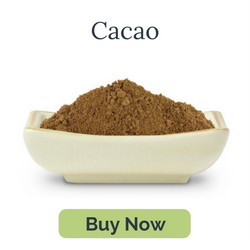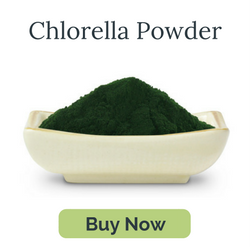Foods to Avoid for Disease Prevention | Sunburst superfoods

We know that superfoods are great for providing us with tons of antioxidants, vitamins, and minerals to help fight against disease, but it’s also important to remember that there are some foods that we should avoid for the same reason. Disease prevention comes in many forms, and while removing certain foods from your diet may seem like a huge life change, the benefits are so wide-ranging and impressive that after just one week without these foods, we know you’ll see a difference in the way you feel.
If removing all of these foods from your routine feels impossible, feel free to choose one per week (or even per month) to focus on avoiding. Then, add another. We promise, it’s easier than it seems.
So which foods should we be most careful to avoid in order to prevent disease? Check out the list below and see which diseases are associated with which food, then choose the one (or ones) you’d like to focus on first. Here's to your health, superfoodies!
1. Artificial Sweeteners
Replacing regular sugar with artificial sweeteners may seem like a smart move, but heed our warning: artificial sweeteners pose just as much danger to the average person than regular sugar does. Sure, consuming too much sugar on a daily basis poses health risks such as obesity, Type 2 diabetes, and heart disease. And although the exact dangers of artificial sweeteners have been debated now for many years, it’s become clear that they pose the same - if not more - risks than plain old sugar.
Recent studies have discovered that just one can of a sugar-free soft drink per day can lead to increased risk of dementia in the form of Alzheimer’s disease and stroke. Additionally, while studies are continuously being conducted, many researchers claim that certain types of artificial sugars are related to an increased risk of cancer diagnosis.
The takeaway? It’s probably smarter to switch to some all-natural sugars such as coconut palm sugar than to rely on artificial sweeteners. We’re trying to avoid anything artificial anyway, right?
2. Hydrogenated Oils
Hydrogenation is the process of adding hydrogen to liquid oils to turn them to solids. Oils can be either fully or partially hydrogenated, but the partially hydrogenated oils contain trans fats, also known as “bad fats.” Trans fats are notorious for having a negative effect on cholesterol, literally raising “bad” cholesterol and lowering “good” cholesterol. But what do trans fats do in terms of disease?
Partially hydrogenated oils promote inflammation in the body, which is commonly associated with heart disease, diabetes, and other chronic diseases. In fact, research has shown that even the average consumption of trans fats by Americans has been shown to increase the chance of heart disease by 25%. Ouch.
So how can we avoid these oils? First, be sure to read nutrition labels to discover whether or not they’re in the food you’re eating. Plus, try to avoid processed foods or “junk” foods like fried foods and snacks, which usually contain trans fat.
3. Cured Meats
Many people have a guilty pleasure for cured meats - salami, ham, and bacon can be, well, delicious, but they’re not necessarily worth the health risks that they pose. Eating processed meats has been associated with chronic diseases like high blood pressure, heart disease, and bowel and stomach cancer, as demonstrated during studies on animals.
So why is this the case? First, cured meats contain N-nitroso compounds, which are used to preserve the meat’s color, improve flavor, and prevent the growth of bacteria. Additionally, most people know that cured meats are extremely high in sodium levels, and while the sodium in these foods alone won’t cause heart problems, they may contribute to a high salt intake, which we know can be deadly.
This problem is an easy fix for most people, as organic meats and fish are easy to find! Believe us: it’s a small sacrifice for big health benefits.
4. Soda
According to Harvard University, individuals who drink one or two sugary soft drinks per day have a baffling 26% greater risk of developing Type 2 diabetes, heart disease, and other chronic diseases. Additionally, soda consumption puts us at risk for developing cirrhosis, in a way very similar to the risk with alcohol. Finally, individuals who consistently drink soft drinks often experience low calcium levels and high phosphate levels, which can contribute to the development of osteoporosis. In general, we recommend limiting your intake of any drinks with added sugar, as not only do they pose health risks, but they very often lead to unintended weight gain. Looking for a healthy new drink? Click here to check out how chlorella water can help improve your health.



